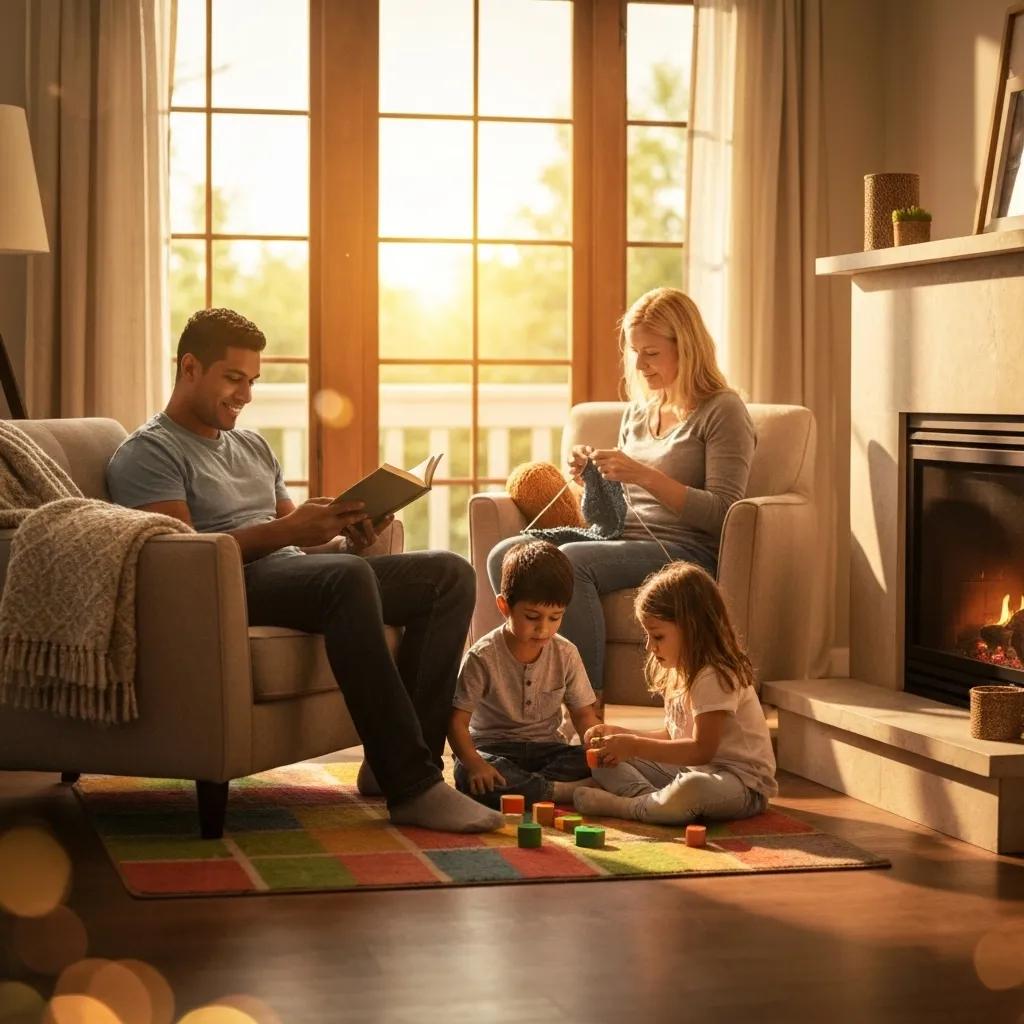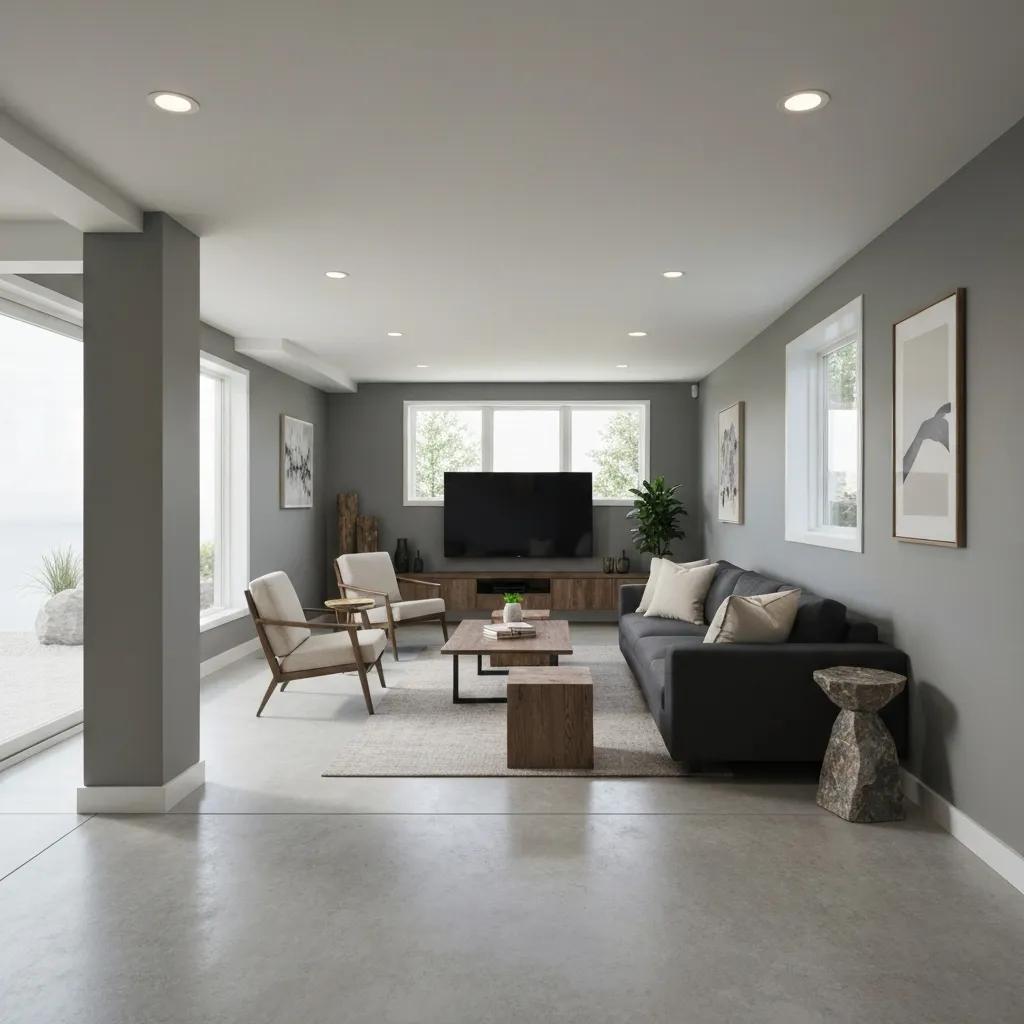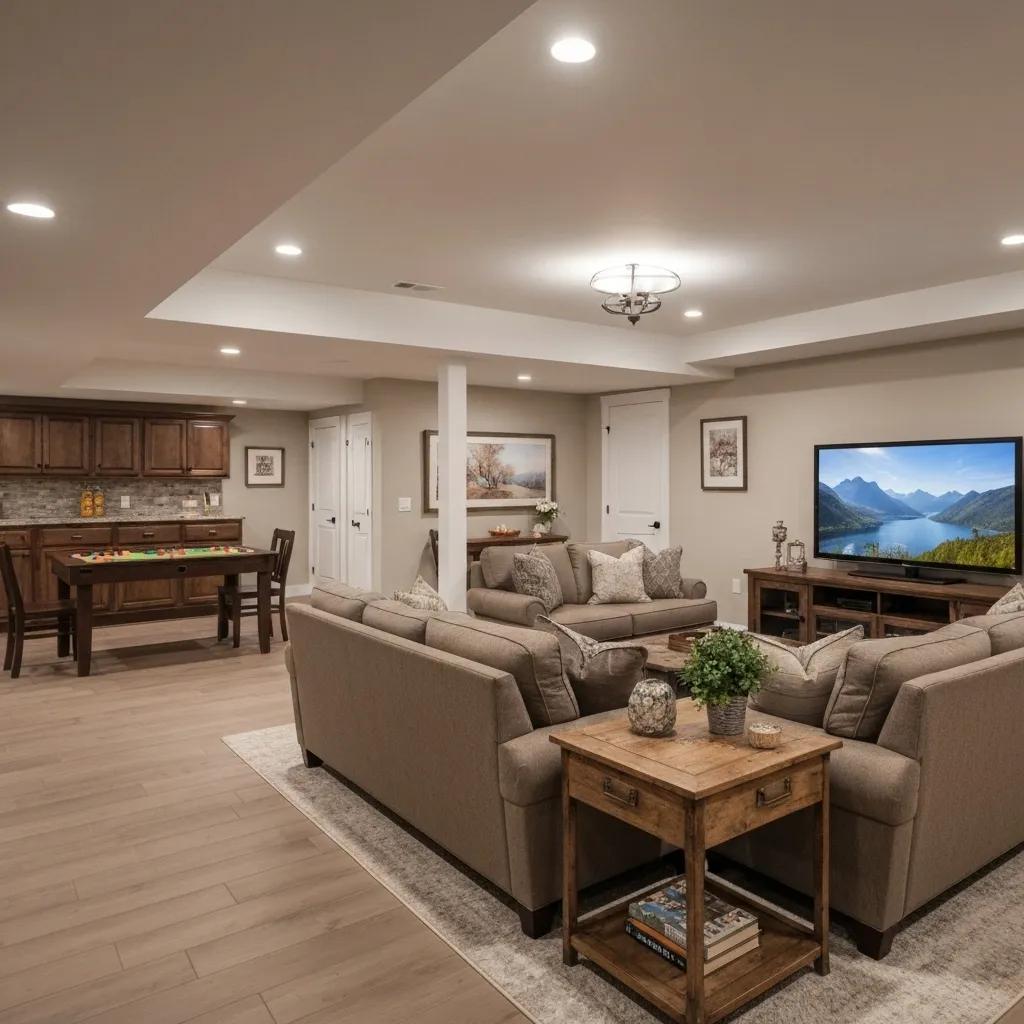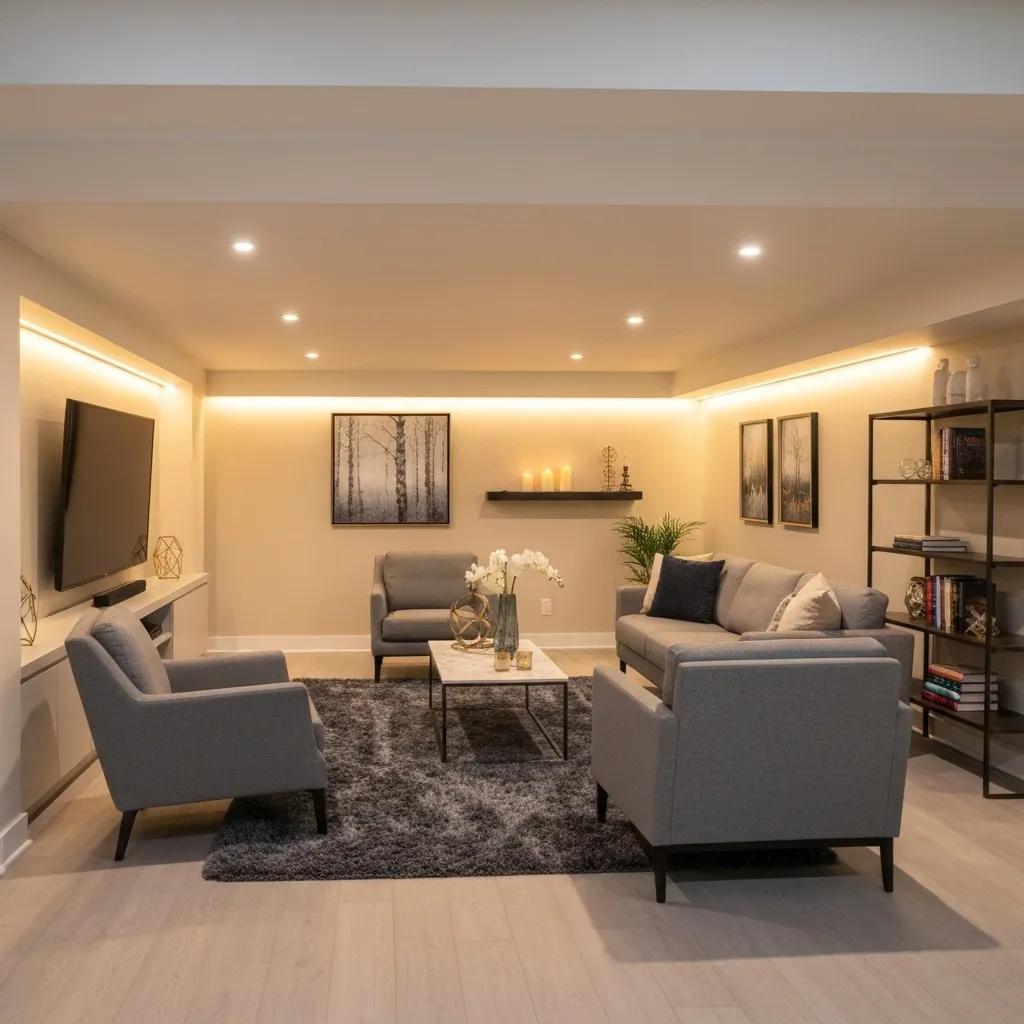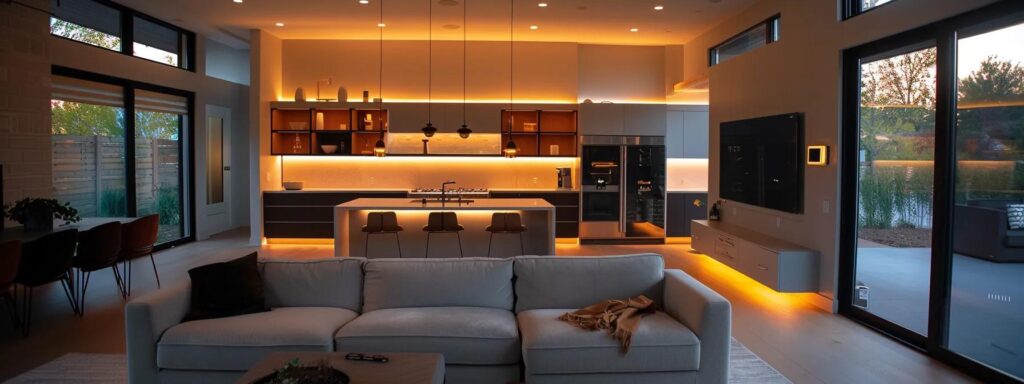
Table Of Contents:
- Smart Home Features Transforming New Builds in Des Moines
- What Are the Key Smart Home Features for New Builds in Des Moines?
- What Are the Benefits of Integrating Smart Home Features in New Builds?
- How to Choose the Right Smart Home System for Your New Build in Des Moines?
- What Are the Typical Costs and Installation Processes for Smart Home Features in Des Moines?
- What Local Case Studies Showcase Smart Home Success in Des Moines New Builds?
- How Is Voice Control Revolutionizing Smart Homes in Des Moines?
- How Do Smart Home Features Support Energy Efficiency Trends in Iowa New Builds?
- What Are the Most Trusted Smart Home Brands and Compatibility Options for Des Moines New Builds?
- Frequently Asked Questions
Smart Home Features Transforming New Builds in Des Moines
Smart home technology is reshaping how homeowners experience comfort, efficiency, and security. In Des Moines, where innovation meets Midwestern practicality, integrating smart home features into new builds is a key trend in home-building. Homeowners increasingly seek remote control over everyday devices, better energy conservation, and improved security. With options ranging from smart lighting and thermostats to advanced security systems and voice-controlled assistants, these features add convenience while increasing home value and sustainability. This article reviews key smart home features for new builds in Des Moines, their benefits, costs, installation processes, and real-world examples. Understanding how smart technology can transform your home—from energy savings to improved security—helps homeowners make informed decisions during home-building or renovation, leading to enhanced convenience, boosted property value, and long-term cost savings.
What Are the Key Smart Home Features for New Builds in Des Moines?
New builds in Des Moines incorporate advanced sensors, energy management, and integrated connectivity to create a unified smart home experience. Pre-installed systems offer remote management, ensuring comfort, improved security, and energy efficiency.
How Does Smart Lighting Improve Energy Efficiency and Ambiance?
Smart lighting systems (e.g., Philips Hue) let homeowners adjust brightness, set schedules, and change colors to suit moods. Sensors and automated timers help reduce energy waste by adapting to natural light levels. These systems also allow customized lighting scenes for different activities—such as dining or movie nights—and integrate with mobile apps and voice controls (via Amazon Alexa or Google Assistant) for effortless management.
What Benefits Do Smart Thermostats Offer for Iowa Homes?
Smart thermostats like Google Nest and Ecobee learn routines to adjust heating and cooling automatically, reducing energy use by up to 15% annually. They provide remote access via mobile apps and deliver real-time energy insights. This helps homeowners optimize consumption, leading to lower utility bills and increased comfort.
How Do Smart Security Systems Protect New Des Moines Homes?
Smart security systems combine cameras, sensors, alarms, and smart locks to form a vigilant network. High-definition cameras with motion detection and doorbell cameras capture real-time activity, while integrated mobile apps send instant alerts when unusual events occur. When paired with automated lighting and thermostat controls, these systems can deter intruders and improve emergency response times, ensuring greater peace of mind.
What Role Does Home Automation Play in Convenience and Control?
Home automation offers centralized control over lighting, heating, security, and entertainment via a single interface (mobile app or voice assistant). Pre-programmed routines such as a “good night” mode can dim lights, lock doors, and adjust temperatures automatically. Integrating automation during construction enhances wiring efficiency, reduces later retrofitting issues, and ensures the home runs at peak efficiency.
How Are Smart Appliances Enhancing Modern New Builds?
Smart appliances now offer connected solutions that simplify tasks in cooking, cleaning, and air purification. For instance, smart refrigerators manage inventory and shopping lists, while smart ovens allow remote pre-heating and precise temperature control. Dishwashers, washers, and other appliances share real-time energy-use data and maintenance alerts, all coordinated through a central home automation hub. This interconnectivity streamlines routines and heightens productivity throughout the home.
Why Is Voice Control Becoming Essential in Des Moines Smart Homes?
Voice control has become a crucial feature due to its simplicity and accessibility. Devices like Amazon Echo and Google Assistant allow hands-free control of lighting, temperature, music, and security systems. Their natural language processing ensures quick, accurate execution of commands, which is especially important for those with mobility concerns, making smart homes usable for a wider range of residents.
How Do Smart Entertainment Systems Add Value to New Homes?
Smart entertainment systems integrate streaming devices, smart TVs, soundbars, and home theater systems into one controllable setup. This provides an immersive cinematic experience at home with options to manage multi-room audio and adaptable volume levels based on ambient noise. Such systems not only enhance leisure and social gatherings but also contribute to energy savings and increased property appeal.
What Are the Benefits of Integrating Smart Home Features in New Builds?
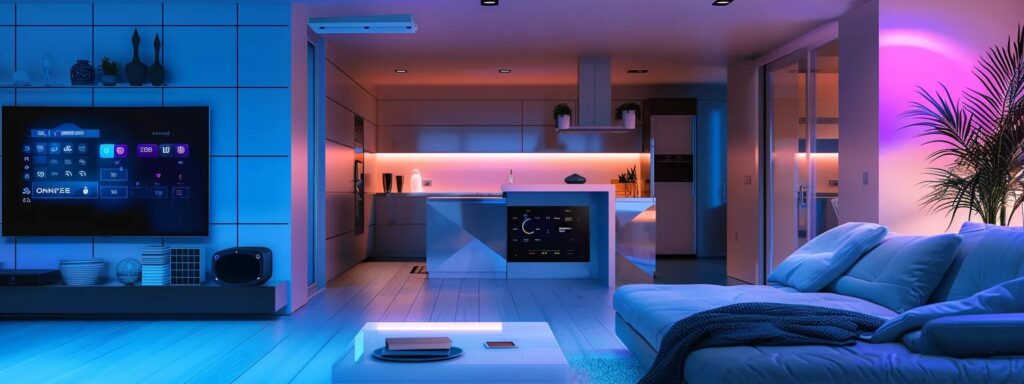
Integrating smart features into new builds offers benefits like energy savings, improved comfort, enhanced security, and potential property value increases. Homeowners enjoy a personalized living experience that adapts to daily routines, resulting in improved efficiency and reduced stress.
How Do Smart Features Increase Energy Savings and Efficiency?
Key benefits include automatic adjustments in lighting and climate control. Programmable thermostats and motion sensor-triggered lights can reduce energy use by around 15%. Smart appliances communicating with centralized systems prevent unnecessary energy use, resulting in both lower bills and a reduced carbon footprint.
In What Ways Do Smart Systems Enhance Home Security and Peace of Mind?
Smart security systems provide remote monitoring, video surveillance, and quick alert mechanisms. The ability to control locks and simulate occupancy through automated routines deters potential intruders. Such integrated systems allow immediate responses to unusual events, ensuring that homeowners feel safer both at home and away.
How Do Smart Homes Improve Comfort and Daily Convenience?
Smart home technology consolidates multiple systems into one interface, simplifying daily tasks. A morning routine might involve slowly increasing light, adjusting the thermostat, and even starting a coffee machine—all controlled via a single command. Such convenience improves overall quality of life, particularly for busy families and professionals.
Can Smart Home Features Increase Property Value in Des Moines?
Homes equipped with smart systems are highly attractive to buyers. Energy-efficient, secure, and technology-forward homes command higher market prices due to long-term savings and modern functionality. As sustainability gains importance, smart home features become key differentiators in the competitive Des Moines real estate market.
How to Choose the Right Smart Home System for Your New Build in Des Moines?
Selecting an optimal smart home system requires balancing cost, functionality, and compatibility. Homeowners should consider both current needs and future expansion when evaluating technologies, ensuring that the chosen system fits within existing infrastructures and long-term goals.
What Factors Should Homeowners Consider When Selecting Smart Features?
Key considerations include compatibility with existing devices, scalability for future upgrades, ease of use, and energy efficiency. It is important to evaluate long-term benefits such as lower utility bills and enhanced security while ensuring that the system meets the needs of all household members, including those requiring voice control or advanced remote monitoring.
How Do Different Smart Home Systems Compare in Features and Compatibility?
Systems like Control4 and HomeKit offer broad compatibility with lighting, thermostats, and security systems, while others may specialize in specific functions. The following table summarizes popular options:
| System | Key Features | Compatibility | Cost Range | User Benefit |
|---|---|---|---|---|
| Control4 | Comprehensive automation | Zigbee, Z-Wave, Wi-Fi | Moderate to High | Centralized control, scalability |
| HomeKit | Voice control integration | Apple devices | Moderate | Simplified pairing, intuitive use |
| Google Nest | Smart thermostats, cameras | Wi-Fi, Bluetooth | Moderate | Energy tracking, remote monitoring |
| Amazon Alexa | Voice and smart speaker | Wide range of devices | Low to Moderate | Multifunctional voice control |
| Samsung SmartThings | Broad ecosystem integration | Zigbee, Z-Wave, Wi-Fi | Moderate | Versatile, user-friendly interface |
When Is the Best Time to Integrate Smart Technology During Construction?
Installing smart technology during construction is ideal for integrating wiring and infrastructure seamlessly. Early planning for device placement minimizes retrofitting and ensures an aesthetically pleasing design. This proactive approach also allows easier updates as new technologies emerge.
Why Choose a Local Expert Like Des Moines Home Innovations?
Local experts, such as Des Moines Home Innovations, understand regional building codes, infrastructure, and climate considerations. They provide personalized consultations, recommend reliable brands, and ensure quick after-sales support. This local insight guarantees that smart features are installed correctly and suited to the specific demands of new builds in Des Moines.
What Are the Typical Costs and Installation Processes for Smart Home Features in Des Moines?
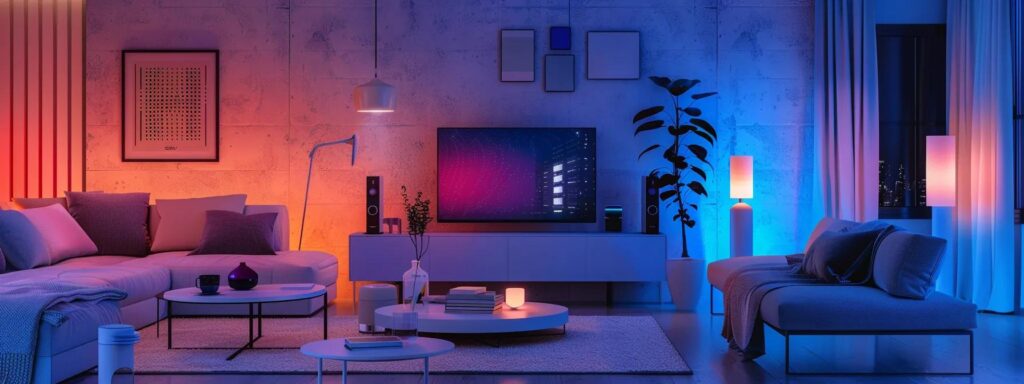
Costs for smart home upgrades vary based on device type, quantity, and installation complexity. Investments can start from modest DIY setups to comprehensive professional installations.
How Much Does It Cost to Install Smart Lighting and Thermostats?
Smart lighting typically costs between $50 and $150 per bulb, while smart thermostats range from $200 to $300 per unit. Professional installation may add $100–$300 per device, though early integration during construction is usually more cost-effective. Energy savings from these devices help offset initial expenses over time.
What Is the Installation Process for Smart Security and Automation Systems?
Installing smart security systems generally includes a site survey, device placement, wiring or wireless configuration, and integration into a central monitoring hub. The process involves testing to ensure harmonious operation among cameras, sensors, and smart locks. For fully integrated home automation, experts coordinate multiple devices to work together efficiently, typically completing the setup within a few hours to a full day.
Should You Opt for Professional Installation or DIY Solutions?
While DIY installation can work for simple devices like smart bulbs, advanced systems that require network security and inter-device communication are better handled by professionals. Expert installers ensure correct configuration and compliance with local codes, reducing downtime and ensuring optimal performance.
Are There Financing or Incentive Options for Smart Home Upgrades?
Various utility companies and government programs offer rebates, tax breaks, and financing options to offset the installation costs of smart home features. These financial incentives, along with the long-term savings on energy bills, make smart home upgrades a sound investment.
What Local Case Studies Showcase Smart Home Success in Des Moines New Builds?
Local case studies illustrate how smart home integrations can enhance energy efficiency, security, and quality of life. They provide real-world examples that validate the benefits of investing in smart technologies.
How Did Smart Lighting Transform a New Home in Des Moines?
One case study featured a new Des Moines residence that installed an advanced smart lighting system. With motion sensors and automated timers, homeowners achieved a 20% reduction in monthly electricity bills while enhancing the home’s aesthetic with customizable lighting for different times of day—all integrated during construction to minimize disruptions.
What Were the Results of a Complete Home Automation Installation?
A comprehensive home automation project in a new build provided centralized control over lighting, heating, security, and entertainment. The single mobile application improved convenience, enhanced energy efficiency, and boosted property value. The homeowner credited automated routines with saving time and ensuring key systems, such as security cameras and smart locks, worked reliably.
How Did a Smart Security System Improve Safety for Local Homeowners?
In another case study, a family installed a state-of-the-art smart security system featuring doorbell cameras, smart locks, and indoor/outdoor surveillance. The system sent real-time alerts during an attempted break-in, enabling immediate contact with law enforcement. This rapid response and deterrent effect underscored the value of integrated smart security for long-term peace of mind.
How Is Voice Control Revolutionizing Smart Homes in Des Moines?
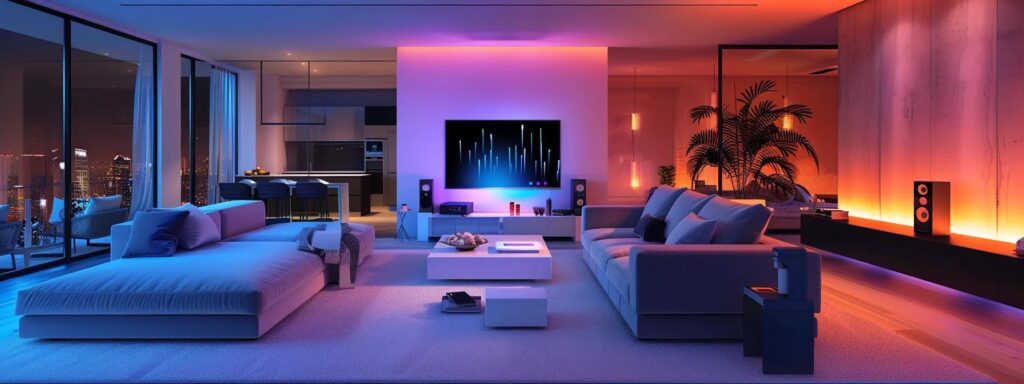
Voice control is transforming interactions within smart homes by offering a hands-free, intuitive way to manage various systems. Its seamless integration with lighting, thermostats, and security makes daily operations simpler and more accessible.
What Are the Most Popular Voice Control Devices for New Builds?
Popular devices include Amazon Echo, Google Home, and Apple HomePod. These voice-controlled speakers integrate robustly with other smart systems, providing a central hub to adjust settings, obtain information, and activate routines with simple voice commands.
How Does Voice Control Integrate With Other Smart Home Systems?
Voice assistants connect with systems via centralized hubs and cloud platforms. By linking to devices like smart lights and thermostats, users can easily issue commands such as “turn off the lights” or “set the temperature to 72 degrees.” This integration, enabled by Wi-Fi, Zigbee, or Z-Wave protocols, simplifies daily interactions and enhances overall automation.
What Are Common Setup Tips and Troubleshooting Steps?
Setting up voice control devices involves linking them to your home Wi-Fi, configuring them through dedicated apps, and calibrating with voice training. To ensure optimal performance, maintain a strong network connection, update software regularly, and position devices centrally for best audio pickup.
How Do Smart Home Features Support Energy Efficiency Trends in Iowa New Builds?
Energy efficiency is a critical goal in modern Iowa new builds, and smart home features play a significant role in reducing utility costs and waste. These technologies support broader environmental goals while improving home performance.
What Are the Latest Energy Efficiency Statistics for Smart Homes?
Homes with smart features have been shown to reduce overall energy consumption by up to 20%, with smart thermostats lowering heating and cooling expenses by 10-15% and smart lighting saving an additional 15% compared to conventional systems. These figures illustrate how smart technology can maintain comfort while conserving energy.
How Do Smart Thermostats and Lighting Reduce Energy Consumption?
Smart thermostats use algorithms to predict behavior and adjust temperatures to avoid unnecessary heating or cooling. Similarly, smart lighting systems use occupancy sensors and adaptive brightness controls to dim or turn off lights when not needed. Combined, these measures reduce energy bills and support sustainability.
What Incentives Exist for Energy-Efficient Smart Home Installations?
Local and state programs may offer rebates on smart thermostats, LED lighting, and other energy-saving devices. These financial incentives, along with green building certifications and sustainable design initiatives, help offset installation costs and promote the adoption of energy-efficient technologies.
What Are the Most Trusted Smart Home Brands and Compatibility Options for Des Moines New Builds?
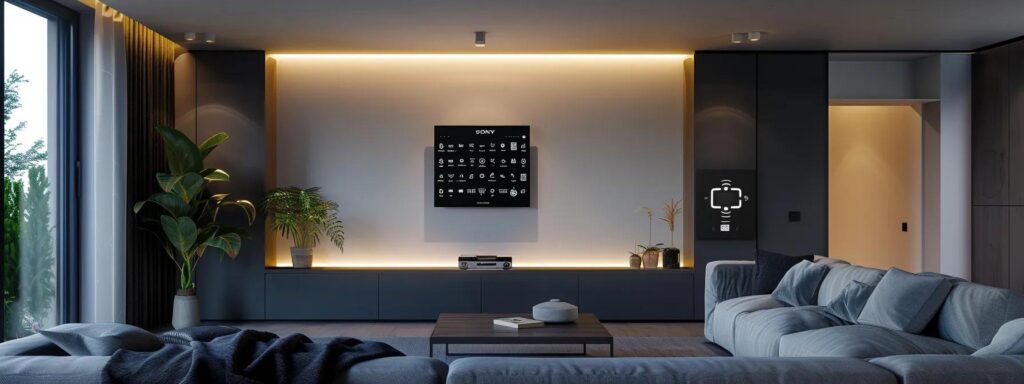
Selecting reputable brands ensures reliable compatibility and long-lasting support. Homeowners benefit from products known for quality, seamless integration, and future-proofing their smart home ecosystem.
Which Smart Lighting Brands Are Recommended for New Homes?
Brands such as Philips Hue, LIFX, and Sylvania Smart+ are well-regarded for their advanced color options, intuitive apps, and compatibility with major smart home systems. Their consistent software updates and quality standards make them a smart choice for new builds.
What Are the Leading Smart Thermostat and Security System Brands?
Top smart thermostat brands include Google Nest, Ecobee, and Honeywell. These products provide efficient energy use and adaptive control. For security, brands like Ring, Arlo, and SimpliSafe offer high-definition surveillance and rapid response features, ensuring robust protection in new homes.
How Do These Brands Integrate Seamlessly With Home Automation Platforms?
Trusted brands support standard protocols like Zigbee, Z-Wave, and Wi-Fi, allowing smooth integration with platforms such as Control4, Samsung SmartThings, and Apple HomeKit. This compatibility creates an interconnected network controllable from a single hub, streamlining home management.
Frequently Asked Questions
Q: How do smart home systems save energy in new builds? A: They use automation features like scheduled lighting and adaptive thermostats to optimize usage and reduce wasted power, leading to lower utility bills.
Q: What is the typical cost of integrating smart home features during construction? A: Costs vary; smart lighting can range from $50–$150 per bulb and smart thermostats from $200–$300 each, with professional installation adding $100–$300 per device. Rebates may help offset these costs.
Q: Are voice control devices reliable for daily use? A: Yes, devices like Amazon Echo and Google Home provide hands-free, dependable control and integrate well with other smart devices.
Q: How do smart security systems enhance home safety? A: They offer real-time alerts, high-definition surveillance, and integrated lock controls, deterring intruders and enabling rapid response to security breaches.
Q: Can smart home technology increase the resale value of my home? A: Yes, features that improve energy efficiency, security, and modern convenience are highly attractive to buyers and can boost property value.
Q: What are the benefits of hiring a professional for smart home installation? A: Professionals ensure systems are correctly integrated, compliant with local codes, and optimally configured, reducing downtime and improving overall performance.
Q: Are there financing options available for smart home upgrades? A: Many utility companies and local programs offer rebates, tax breaks, and financing solutions to help reduce the upfront costs of smart home upgrades.

